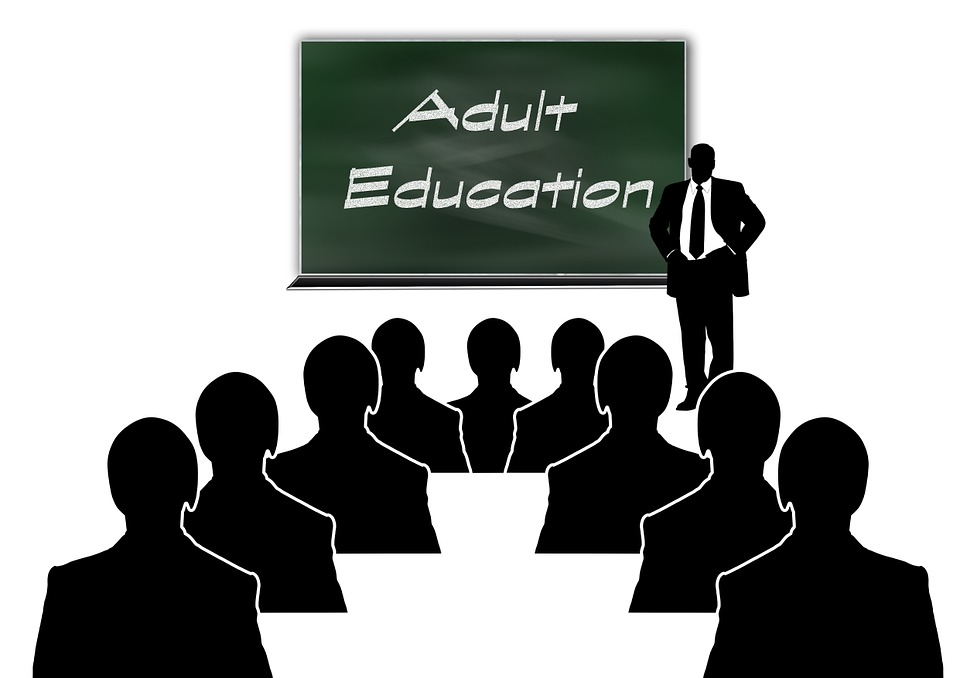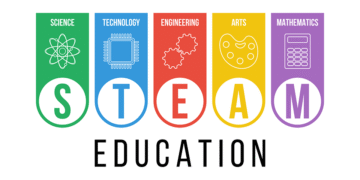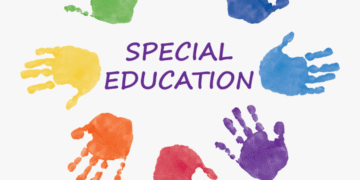1. The Modern Adult Learner: A Growing Trend
Adult learners are increasingly reshaping the educational landscape. Driven by the need to remain competitive and relevant, many are returning to education to enhance their skills or acquire entirely new ones. These individuals often balance work, family, and their studies, highlighting their commitment to self-improvement and career advancement. This dedication underscores the growing recognition that education is a lifelong pursuit, not just a phase of early life.
Educational institutions are responding to the unique needs of adult learners by creating programs that directly align with workforce demands. These programs often incorporate industry-recognized credentials and partnerships with employers, ensuring that adults gain the practical skills and knowledge needed to thrive in today’s job market. This targeted approach helps learners stay competitive in the face of rapidly evolving technologies and changing industry requirements.
Interestingly, some notable differences in educational attainment across various demographics. Women aged eighteen and older slightly outnumber men in bachelor’s degree attainment. This trend suggests that women are increasingly leveraging higher education to advance their careers and achieve their professional goals.
The overarching trend emphasizes the growing demand for flexible educational pathways that support continuous upskilling and reskilling throughout adulthood. To encourage even more adults to embrace lifelong learning for career advancement, it’s crucial to address concerns about program relevance and administrative hurdles. By streamlining the enrollment process and ensuring that programs are directly applicable to real-world job skills, institutions can make adult education more accessible and appealing.
2. Online Courses: Your Gateway to Skill Enhancement
In our fast-paced world, continuous learning is essential for staying ahead. Online courses have emerged as a powerful and convenient way for individuals to update their skills and propel their careers forward. This trend is transforming adult education and professional development, offering unprecedented access to knowledge and expertise.
Online education has exploded in popularity, providing flexibility and accessibility to learners of all ages and backgrounds. Recent data indicates that a significant percentage of students are now incorporating online courses into their academic journeys. For instance, a substantial number of college students are taking at least one online course, while many are opting for fully online programs. This shift reflects the growing recognition that online learning can be just as effective as traditional classroom instruction, while offering greater convenience and affordability.
The appeal of online learning extends far beyond undergraduate studies. Graduate students, who often juggle demanding work schedules and family responsibilities, are increasingly turning to online courses to pursue advanced degrees and professional certifications. The high percentage of graduate students engaging in online coursework demonstrates the format’s convenience and effectiveness for those seeking specialized knowledge and career advancement.
Educational institutions are keenly aware of the growing importance of online learning and are investing accordingly. A large percentage of administrators are planning to increase spending on online learning initiatives in the coming years. This commitment suggests that online education is not just a passing fad, but a core component of future educational strategies.
3. Flexible Learning: Juggling Education, Work, and Life
Adult learners are becoming increasingly common in higher education, but balancing education with work and family commitments requires flexible learning paths. Exploring strategies and support systems that can help adult learners succeed is crucial for fostering a more inclusive and accessible educational environment.
Adult learners, typically defined as those over twenty-five, now represent a significant portion of today’s student population. Recent data indicates that adult learners make up nearly a quarter of all undergraduate enrollments. This substantial presence underscores the growing need for educational approaches tailored to their unique circumstances and challenges.
Many adult learners face the daunting task of juggling multiple responsibilities. A large percentage are employed while studying, and almost half have dependent children. This is a stark contrast to traditional-age students, a much smaller percentage of whom have dependents.
| Category | Statistic | Year/Period |
|---|---|---|
| Adult undergraduates (age 25+) enrolled | 3.9 million | Fall 2023 |
| Share of adult learners among undergrads | 24% | Fall 2023 |
| Adult learners employed while studying | 69% (full or part-time) | 2022 |
| Adult learners with dependent children | 48% | Spring 2020 |
| Traditional-age students with dependents | ~3% | Spring 2020 |
Data source: BestColleges “Adult Learners in College: Facts & Statistics” June 6, 2025
Flexible learning options, particularly online programs, are invaluable for adult learners. These formats allow students to manage their studies around work schedules and family obligations, making education more accessible and achievable. This flexibility is a key factor in enabling adult learners to pursue their educational goals without sacrificing their other commitments.
Despite the availability of flexible options, adult learners still encounter obstacles. Financial constraints and time limitations due to existing obligations are common challenges. Institutions can address these issues by offering tailored support services, such as financial aid, childcare assistance, and flexible course scheduling.
To better serve adult learners, institutions should prioritize accessible course formats and specialized support services. By addressing the unique needs of this growing student population, colleges can unlock career growth and promote lifelong learning opportunities for all.
4. Beyond the Job: Expanding Your Horizons Through Education
Adult education is increasingly recognized as a vital pathway for personal growth and career advancement. It empowers individuals to explore new interests and broaden their horizons far beyond the confines of traditional workplace settings. This holistic approach to learning can lead to a more fulfilling and well-rounded life.
Adults over 25 constitute a significant portion of postsecondary students, many of whom balance education with work and family responsibilities. They often opt for part-time or online studies, reflecting a growing desire for lifelong learning and the need to adapt to evolving labor market demands. This trend highlights the importance of providing accessible and flexible educational opportunities for adults at all stages of life.
Despite the enthusiasm for adult education, completion rates can sometimes be lower compared to younger students. This is often due to external pressures such as job demands and family responsibilities. However, institutions are actively working to address these challenges by expanding outreach efforts and offering more flexible learning options, making education more accessible and manageable for busy adults.
There’s a growing trend toward integrating education with workforce needs, which includes industry certifications and corporate training programs. These initiatives benefit both individuals seeking career advancement and institutions aiming to meet the evolving demands of the labor market. By aligning education with real-world job skills, these programs enhance career prospects and contribute to a more skilled and competitive workforce.
5. Debunking Myths: The Truth About Adult Education
Adult education is often shrouded in misconceptions that can discourage individuals from pursuing their educational goals. It’s time to dispel some common myths and shed light on the realities of adult learners and their pursuit of knowledge and career advancement.
One prevailing myth is that adult learners are rare or somehow atypical. However, adults aged 25 and over make up a substantial portion of postsecondary students, demonstrating the continuous pursuit of education throughout life. This widespread participation underscores the growing recognition that learning is a lifelong process, not just a phase limited to youth.
Another misconception is that adult learners have a lower potential for academic success compared to their younger counterparts. However, data indicates that a significant percentage of adults achieve substantial degree attainment across various age groups. For instance, a notable portion of adults aged 25+ hold a bachelor’s degree as their highest credential, demonstrating their commitment to education and their ability to succeed academically.
| Age Group | Bachelor’s Degree as Highest Attainment (%) | Number of Adults (Millions) |
|---|---|---|
| 18+ | 22.2 | 57.305 |
| 25+ | 23.5 | 53.503 |
| Men, 18+ | 21.3 | 26.928 |
| Women, 18+ | 23.0 | 30.293 |
| Age 20–24 | 16.3 | 3.632 |
| Age 35–39 | 26.3 | 5.833 |
| Age ≥65 | 18.4 | 10.651 |
Data source: Education Data Initiative “Educational Attainment Statistics [2025]: Levels by Demographic” January 14, 2025
It’s often assumed that adults pursue education solely for career changes or professional advancement. While career goals are certainly a motivator for many, numerous adults also seek education for personal growth, intellectual stimulation, and lifelong learning, enriching their lives beyond professional objectives. This broader perspective highlights the diverse motivations that drive adults to pursue education and the many benefits they derive from it.
Q&A
Question 1: What is the main argument presented in the provided text regarding adult education?
Answer: The text strongly advocates for adult education, emphasizing its crucial role in career advancement, skill development, and lifelong learning. It highlights the increasing importance of continuous learning in a rapidly changing world and the need for flexible educational pathways to accommodate the diverse needs of adult learners. The articles also debunk common misconceptions about adult education, such as its rarity or lower potential for academic success.
Question 2: What are some key trends observed in adult education participation and online learning?
Answer: Several key trends are highlighted: a significant rise in adult learners returning to education for upskilling or reskilling; the increasing prevalence of workforce-aligned programs offering industry credentials and employer partnerships; a substantial increase in online course enrollment among both undergraduate and graduate students; and significant institutional investment in digital education initiatives. Data shows a large percentage of college students are taking at least one online course, and a similar percentage of graduate students are doing so as well.
Question 3: What challenges do adult learners face, and how can these challenges be addressed?
Answer: Adult learners often juggle work, family, and education, facing challenges like financial constraints and time limitations. They may also encounter administrative hurdles and concerns about program relevance. To address these, the text suggests offering more flexible learning pathways (like online programs), providing tailored support services, and addressing financial barriers. Institutions should prioritize accessible course formats and specialized support to better serve this growing student population.







